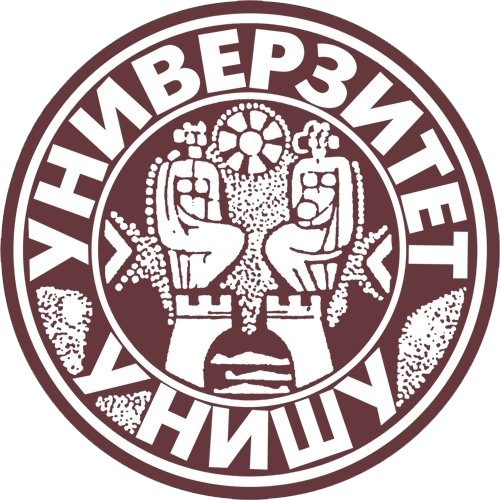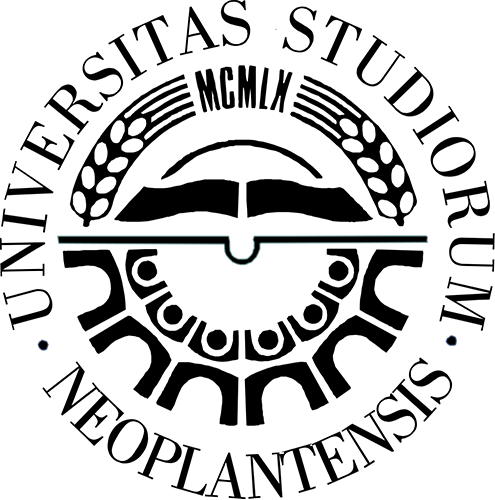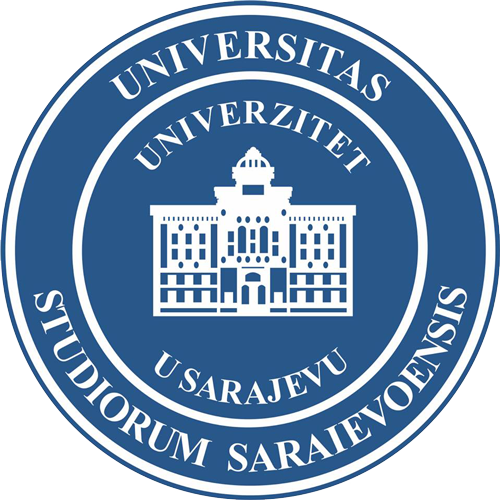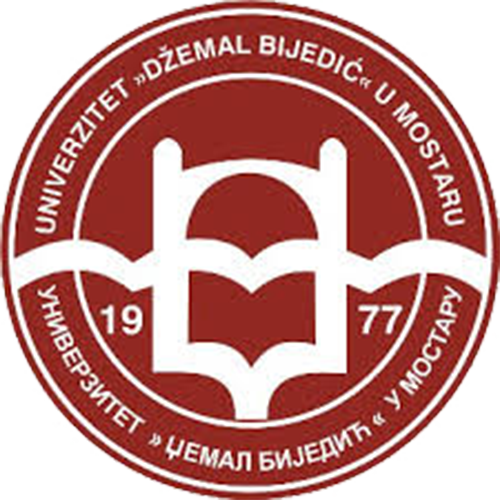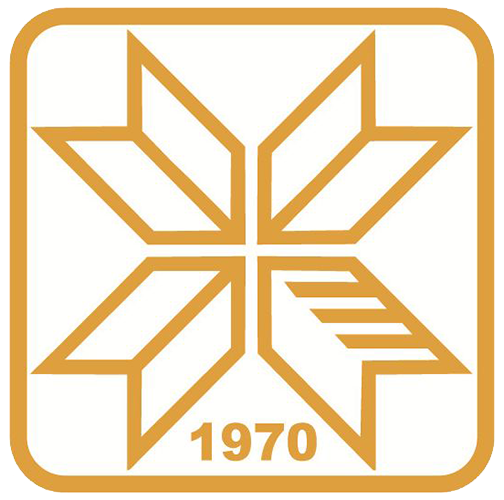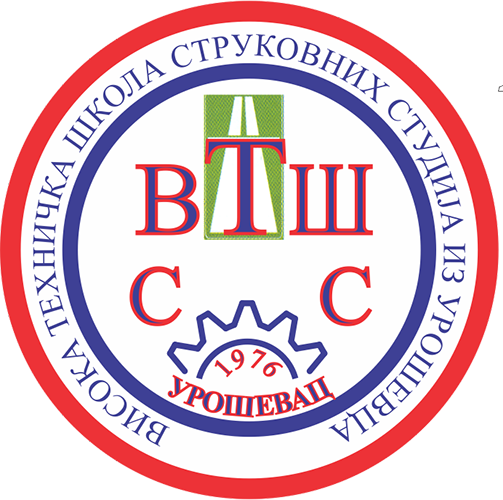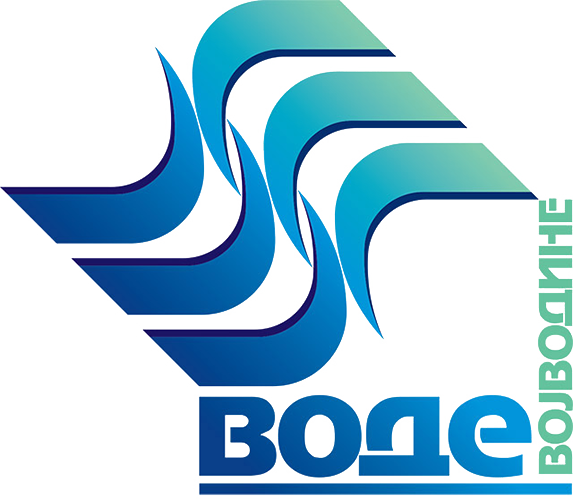Consortium
University of Niš
|
The University of Niš was founded in 1965 as a state HE institution. It is a medium-sized, mature and well developed academic community, comprising 13 faculties: Faculty of Civil Engineering and Architecture, Faculty of Economics, Faculty of Electronic Engineering, Faculty of Arts, Faculty of Law, Faculty of Mechanical Engineering, Faculty of Medicine, Faculty of Occupational Safety, Faculty of Philosophy, Faculty of Physical Culture, Faculty of Science and Mathematics, Faculty of Technology and Faculty of Education. Most of those faculties have composite structure, i.e. various departments, divisions or majors, offering wide and diversified study and research opportunities at both undergraduate and graduate level, including opportunities to obtain a PhD degree. Study programmes are in compliance with the European standards in terms of admission requirements, duration of study, mode of study and acquiring diploma, particularly with regard to the outcome of the study programme, or the students’ competence.The University of Nis has multidisciplinary study programmes, lifelong learning programmes outside the study programme curriculum and professional development and distance learning programmes and supports continual and professional (scientific, research, and professional) general interest activity of its teachers, researchers, teaching assistants, and students, and supports their participation in national and international project activity as well as presentation and publication of the results of scientific activity. It conducts innovation activity with the purpose of creating new products, technology, processes, and services, or significantly altering the existing ones, according to demands of the market. The capacity of UNI to deal with the theme of the project is based on potential of Faculty of Civil Engineering and Architecture, Faculty of Electronic Engineering and Faculty of Occupational Safety in higly qualifield staff in the field of analysis of hydrological hazards, bioclimatic architecture, diagnostics and repairs of construction, GIS,enviromnental safety engineering, fire protection engineeringand emergency management. The University of Nis presently has 28207 students at all levels of studies, 1639 teaching staff and 740 administrative and support staff.
Team:
|
University of Natural Resources and Life Sciences, Vienna
|
Founded in 1872, the University of Natural Resources and Life Sciences, Vienna, known too by its acronym BOKU, comprises 15 departments and four service centres in Vienna, as well as a number of experimental centres around Vienna. The university is attended by approx. 12,500 students, provides study courses at the bachelor, master and doctoral levels, has approx. 1080 staff (full-time equivalent) who are engaged in teaching and research, a broad range of external lecturers, and some 560 persons working in services and administration. The university sees itself as a teaching and research institution that focuses on renewable resources that are a prerequisite for human existence. The relationships between man, society and the environment form the basis of all activities at BOKU, and its foremost aim is to make decisive contributions to securing the well-being of future generations. In this endeavour, it will seek ways of ensuring a sustainable and environmentally sound management of natural resources by allying the competences of the natural, engineering, economic and social sciences. Areas of competence in teaching and research are in particular: soil and land ecosystems; water, atmosphere, and environment; habitat and landscape; renewable resources and resource-oriented technologies; resources and social dynamics. Study courses are designed to follow BOKU´s main teaching and research disciplines — sustainable use of naturally growing raw materials both for energy and innovative materials, protecting vital resources such as water, soil and atmosphere, shaping true to life production and health, protecting and shaping biotopes and environments, protecting the wellbeing of plants, animals and humans. In addition to undergraduate studies, BOKU puts great emphasis on postgraduate studies and continuing education. Numerous cooperation with units of higher education in Central and Eastern Europe underscore this commitment. BOKU is actively participating in a total of 14 international networks, such as the Euroleague for Life Sciences (ELLS), ICA - Association for European Life Science Universities (ICA-CASEE), or the Danube Rector’s Conference. BOKU follows a Human Resources Strategy for Researchers and was acknowledged by the European Commission with the logo "HR Excellence in Research". Team: Kurt Glock Michael Tritthart |
Norwegian University of Life Sciences
|
|
The Norwegian University of Life Sciences (NMBU- Norwegian name: Norges miljø og biovitenskapelige universitet) was first established in 1859. The Faculty of Science and Technology (Realtek) has the highest number of students (over 1000 of a total of 5700) among the 7 Faculties of NMBU. RealTek has 70 PhD students at present of the total of about 500 at NMBU. Of the 1160 University staff, more than half hold scientific positions, www.nmbu.no NMBU is the leading university for water education in Norway, having produced two thirds of all master level graduates in water & wastewater engineering nationwide over the past 10 years. At present, several bachelor, master and PhD level courses on water resources management, waterdistribution, water treatment, wastewater transport, wastewater treatment, water quality monitoring and analysis, biogas production are active at NMBU, and thought by the NMBU team. The RealTek has 6 research sections, where the Environmental technology and Building technology is one of them with a well-established research group for water and environmental technology focusing on: water supply – treatment processes and transport systems; Conventional and decentralized wastewater systems, Urban hydrology and Water Hygiene and health risks. At present the group has educational and research projects with 30 universities from 22 countries. The proposed NMBU team for this project has initiated and leads one KA-2 project “Water Harmony- Harmonization of graduate education in water” with the participation of 10 universities and 1.3 mill € budget. The faculty – RealTek - has several pilot research facilities in-house, relevant for its research groups. These include experimental facilities for water and wastewater treatment, biogas production, renewable energy research etc. which are used both for education and research. International collaboration and Erasmus+ and EU Horizon 2020 are strategic priorities for NMBU. Team: Harsha Ratnaweera Zakhar Maletskyi |
Aristotle University of Thessaloniki
|
Aristotle University of Thessaloniki (AUTh)is the largest university in Southeastern Europe with 11 Faculties organized into 41 Schools, including 1 single-School Faculty. More than 75,000 undergraduate and postgraduate students study at the AUTh and its Teaching and Research Staff numbers around 2,000 people. In AUTh, 41 Programmes of undergraduate studies and 92 Programmes of postgraduate studies operate in individual Schools, among which there are some inter-departmental, inter-university and international ones. There are also 23 partnerships with foreign institutions for doctoral dissertations of Greek and foreign doctoral candidates under co-supervision. AUTh is ranked 248th among 20,000 Higher Education Institutions worldwide, 99th place among 6,000 HEIs in Europe and 1st among the HEIs in Greece (data of year 2017). AUTh holds International Scientific Agreements with about 100 HEIs of the Balkan Peninsula countries and the Black Sea, China, Russia, the USA, Canada, Australia, Africa, Latin America and the Middle and Far East. In the framework of Erasmus+, Aristotle University holds 1500 bilateral agreements with approximately 600 HEIs, aiming at the mobility of students and of academic and administrative staff. In addition, it supports the implementation of European Programmes such as Strategic Partnerships and Knowledge Alliances (Erasmus + KA2) projects, Support for Policy Reform (Erasmus + KA3) projects, as well as JEAN MONNET, Horizon 2020 and other research and policy projects. It is worth mentioning the active participation of AUTh in ERASMUS MUNDUS Action 2 MID, BMU - MID, EMEA, EMMAG, HERMES, INTERWEAVE, MEDEA and PUEDES Consortia. The Division of Hydraulics & Environmental Engineering is one of the four divisions of the School of Civil Engineering. Apart from hydraulics, hydrology and fluid mechanics thematic areas, the Division also focuses to integrated water resources management, environmental impact assessments, modelling, water quality, GIS, implementation of decision support systems, climate change impacts to water resources. The Division has successfully performed National, European and International research projects and is involved in different TEMPUS, ERASMUS/ ERASMUS-MUNDUS activities. Team: Charalampos SKOULIKARIS Pangiotis PRINOS |
University of Architecture, Civil Engineering and Geodesy
 |
The University of Architecture, Civil Engineering and Geodesy (UACEG) was recognized as a university in 1995. UACEG is successor of Higher Institute of Architecture and Civil Engineering, which existed as a separate Higher Education Institution under different names from 1953 till 1995. Prior to 1953 UACEG was a Faculty in the Higher Technical School, established in 1942. UACEG is the leading Higher Education Institution (HEI) in Bulgaria in all fields of its activity – Architecture, Structural, Transportation and Hydraulic Engineering and Geodesy. It is also the only HEI which graduates students in Bulgaria in specialties “Irrigation and Drainage Engineering”, “Hydraulic Engineering”, “Urban Planning” and “Land and Real Estate Management and Planning”. UACEG is a medium-sized, specialized university for Bulgarian standards. It comprises of five faculties: Faculty of Architecture, Faculty of Structural Engineering, Faculty of Hydraulic Engineering, Faculty of Transportation Engineering and Faculty of Geodesy. In the last 3 years the total average number of students is around 4000, which are enrolled in different Bachelor, Master and PhD study programmes. The total staff of UACEG is about 540 people, including administrative, supporting and seasonal staff. The academic staff include 318 teachers, out of which 44 professors and 104 associate professors. The academic staff of UACEG is recognized as leading capacity in Bulgaria in all fields of its activities, especially in the fields of Water Supply, Sanitation, Water and Wastewater Treatment, Irrigation and Drainage Engineering, Hydraulic Engineering and Water Management. The staff of UACEG took part in different EU projects, funded by TEMPUS, Erasmus, FP7, RFCS and Horizon 2020. It also contributed to several projects of the World Bank, including preparation of Draft Strategies for development of the Water Supply and Sanitation, and for Hydro-melioration and Protection Against Harmful Effects of Water (2015). Team: Irirna Ribarova Maria Mavrova-Guirguinova Petar Filkov |
University of Rijeka, Faculty of Civil Engineering
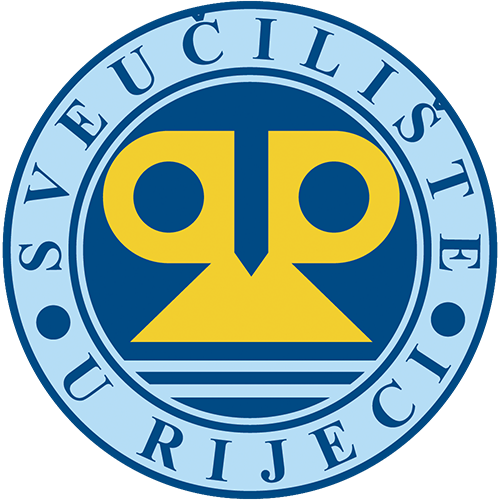 |
The Faculty of Civil Engineering as part of the University of Rijeka (UNIRIFCE) has around 75 employees, of which only the Chair of Hydraulic Engineering counts 11 experts employed and 4 of them will be working on this Project (two professors and two postdoctorate fellows that are involved in teaching). The Faculty was established in 1976. The whole University of Rijeka counts around 1.500 employees (1.000 teachers and 500 non-teaching staff) and 16.700 students, and consists of 11 faculties and 4 university departments, university library and student centre. UNIRIFCE Rijeka has a new building (from 2011) situated within the University Campus with up-to-date equipped classrooms, laboratories and offices for students and Faculty staff. The Hydraulic laboratory has recently been fully equipped with the financial support from EU founds within the project: Research Infrastructure Development at the University Campus of Rijeka (European fund for regional development). Faculty experts have wide experience in water management and hydraulic engineering research and teaching, and have participated in numerous international and national projects in this area of expertise, but also in projects that are related to the improvement of curricula and the quality of study in order to prepare better students for the work market or for continuing their education on doctoral studies and scientific work. At UNIRIFCE all three levels of studies (BSc, MSc and PhD), both university and vocational, are offered and around 700 students are currently enrolled. On graduate university study level (MSc) students are offered the possibility to enroll and develop their knowledge and competences in the branch of Hydrotechnical engineering and Urban engineering, both branches include water management courses. All Faculty study programmes have been reformed in 2005 according to Bologna declaration principles (introduction of: 3 cycles of study, diploma supplement, ECTS, learning outcomes, QA, etc.). Team: Barbara Karleuša Ivana Sušanj Čule Nevena Dragicevic Nevenka Ožanić Bojana Horvat |
Universidade de Lisboa
 |
Universidade de Lisboa (UL) is the largest and most prestigious university in Portugal. Heir to a university tradition that spans over seven centuries, UL acquired its current status in July 2013, following the merger of the former Universidade Técnica de Lisboa and Universidade de Lisboa. UL brings together various areas of knowledge and has a privileged position for facilitating the contemporary evolution of science, technology, arts and humanities. The quality of teaching, research, innovation and culture of UL is attracting an ever increasing amount of talent from around the world. UL is committed to strengthening its capacity to act and to exercise influence in international strategic areas, especially through the development of further partnerships with Brazil, China and the Community of Portuguese-speaking countries. Considering the need to define the Pillars of Action for the UL Research and Development strategy, the Interdisciplinary Thematic Networks were created in late 2013. According to specialized differentiation criteria, the Interdisciplinary Thematic Networks aim to mobilize UL professors and researchers in specific areas of knowledge to increase the University’s participation in international networks. Interdisciplinary Thematic Networks initiatives contribute to a better positioning of UL for the smart specialization strategies (RIS3) within the Portugal 2020 framework and for Horizon 2020 societal challenges. UL is committed to expand its internationalisation-related efforts into the Research, Development and Innovation domain, namely in the areas of redeAGRO, redeSAÚDE, redeMOV and redeMAR networks. In addition, new outreach initiatives related to knowledge transfer and protection will be promoted by redeVALOR encompassing also the development of new co-creation strategies along with the business sector. Team: Luis Ribeiro Maria Manuela Portela Rodrigo Proença de Oliveira |
University of Novi Sad
|
The University of Novi Sad (UNS) was founded in1960. It is the only state university in the Autonomous Province of Vojvodina, comprising 14 faculties and 2 research and developmental institutes. With 5000 staff and more than 50.000 students University of Novi Sadis the second biggest University in Serbia and reputable educational and scientific institutions providing teaching and research. Being the regional stronghold in education and research, UNS naturally attract the best students and the best researchers. University is multidisciplinary, committed to excellence, and produce well-qualified and competent graduates, who find their place in the labour market. UNS showed great success in application of scientific results in practice, which was reflected through FP7 and H2020 grants, which considerably built institutional capacity to administrate and implement very demanding scientific projects. UNS is internationally well-networked university, already involved in ERA and EHEA whose researchers publish in leading journals and are part of many international consortia. UNS especially nurtures innovations in science, is experienced in spinning off new businesses, and is the owner of recognized national and international patents. The activities of UNS are realized through fundamental, applied and developmental research and teaching in the field of natural, technical, social, humanistic and medical sciences as well as arts. Rapid response in generating new technologies and the need to renovate the existing ones as well as the intensive growth of the economy and the social sector, demand the corresponding development of research work, research-oriented faculty and the effective centers for transforming the knowledge into purposeful technologies. This presumes: • Intensive development of knowledge • High quality of the educational process • Flexible curricula • New, functional relationship faculty – enterprise. Consequently, the activities of the University of Novi Sad have been divided in the following manner: • Education • Research and development • Applied research (cooperation with industry) Currently there are more than 400 ongoing research and academic international projects (FP6 & FP7projects, projects within EUREKA, COST, SCOPES, TEMPUS, ERASMUS+), as well as a certain number of mobility schemes (Erasmus Mundus Action 2, Campus Europae, CEEPUS, FORЕCAST, etc). Due to its reputation as one of the leading internationally-oriented universities in Serbia, Prof. Dr. Miroslav Vesković, former Rector of UNS, has been given a key coordinating role for the Priority Area 7 within the EU Strategy for the Danube Region: Developing the Knowledge Society through Research, Education and Information Technologies. Team: Danilo Stipić Goran Jeftenić Maja Petrović Srđan Kovačević Dejan Ubavin Dragana Vujović Igor Peško Nemanja Stanisavljević Slobodan Kolaković Srdjan Kolaković Vesna Mašulović |
University of Sarajevo
|
Until 1975, the University of Sarajevo was the only university in Bosnia and Herzegovina and the beacon of development of higher education and science in the country. In 1996, along with other universities in Bosnia and Herzegovina, the University of Sarajevo joined the European higher education reform support programs. This period was also marked by intense work on repairing the wartime damages and creating an environment suited for stable and continuous development. The University of Sarajevo invested all its efforts to re-enter fully the contemporary European and international academic trends. Understanding the importance of establishing itself within the European Higher Education Area (EHEA), in the academic year 2005/2006, notwithstanding the lack of any state-level guidance and the absence of any political, legal or material support, the University of Sarajevo entered the complex process of reform in compliance with the Bologna principles. Teaching, scientific and research work and artistic-research work is carried out at the University of Sarajevo within 30 organizational units (25 faculties and academies, 5 institutes) and 72 sub-organizational units (4 university centers, 30 faculties, 23 laboratories and 15 faculty centers ). The universality of the University is reflected in the presence of humanistic, social, medical, natural, mathematical, biotechnical, and technical sciences and arts. The University of Sarajevo offers 236 study programs at 1st Cycle, 185 study programs at the 2nd Cycle, 4 integrated study programs, and 93 programs of the I3rd cycle. Out of this number, 9 are taught in English (two on the first cycle, seven in the second cycle, and one in an integrated program). University of Sarajevo offers wide range of study programmes in the science group of Arts, Humanities, Medicine, Social Sciences, Technical Sciences and Nature and Biotechnical Sciences. Based on ISCED and ERASMUS classification, offered study programme are: Agriculture & Forestry, Architecture & Transport, Fine Arts & Design, Performing Arts, Music & Musicology, Business Studies, Management Science, Education, Electrical Engineering, Telecommunications, Civil Engineering, Mechanical Engineering, Geography, Biology, Physics, Chemistry, Mathematics, Philosophy, Psychology, Languages, History, Archaeology, Sociology, Islamic Studies, Catholic Studies, Law, Criminology, Medicine, Pharmacy, Public Health, Dentistry, Veterinary, Journalism, Public Relations, Communication, Security And Peace Studies, Social Work, Sociology, Political Science, Public Administration and Sports. The University of Sarajevo enjoys partnerships with over 100 universities in Europe, the USA, Canada, and the Middle East. University of Sarajevo is an equal partner in mobility programs for students and members of staff, and it is open for study and research activities (Erasmus Mundus, Tempus, Horizon 2020, Erasmus+, CEEPUS, Mevlana, DAAD, Fulbright, and others). In the period between 1996 and 2014, including the TEMPUS preparatory phase, the University of Sarajevo participated in a total of 103 TEMPUS projects; of that, in 83 as a partner, in 16 as the academic coordinator, and in four as the grant holder. On 19 June 2014, Bosnia and Herzegovina respectively signed an Agreement establishing their partial participation in ‘Erasmus+’: the Union programme for education, training, youth and sport (2014-2020). University of Sarajevo benefits as partner country of the external cooperation activities with over 60 active inter-institutional agreements. Team: Ammar Šarić Emina Hadžić Hata Milišić Naida Ademović Suada Džebo Suvada Jusić |
Dzemal Bijedic University of Mostar
|
Dzemal Bijedic University of Mostar (UNMO) was founded in 1977 as one of the pillars of the development of the Herzegovina region. Today University consists of eight faculties in the fields of Humanities, Social Sciences, Technical Sciences, IT, and Biotechnology. Study programs are organized according to the Bologna principles. Students come mostly from Herzegovina and mid-Bosnia, but also from the rest of the country. Additional University capacities include research institutes and centres, and offices for student support. University mission is to organize a wide range of educational processes of different contents and levels, to perform theoretical, applied and emerging scientific research, to become one of the leaders in the education of young experts necessary for the development of economy and society, as well as to promote cultural and social development of our region and country. Apart from close cooperation with seven other public Universities of B&H, good cooperation with local entrepreneurship, and membership in B&H Rector Conference, UNMO has signed bilateral and multilateral Cooperation Agreements with relevant EU universities. Together with its partners, utilizing teachers and students potential, the University is implementing a number of projects, funded from different programs and aiming a wide scope of goals, from scientific to almost completely socially orient. Team: Azra Špago Marko Ćećez Merima Šahinagić - Isović Mili Selimotić Suad Špago |
University of Pristina in Kosovska Mitrovica
|
University of Priština settled in Kosovska Mitrovica (UPKM) is public higher education and research institution founded in 1969. Currently, it is composed of ten faculties with more than 10000 students attending first, second or third cycle studies in technical, social and natural sciences, medicine, sports and arts. Curriculum reform, guided by the Bologna process, has reached into every department and faculty of UPKM. All study programmes are accredited and adapted to the newest requirements and standards. In 2008, UPKM was granted full membership in European University Association (EUA). University participates in various scientific, research and educational national and international projects, including several projects from TEMPUS programme. Faculty of Technical Sciences (FTS) in Kosovska Mitrovica is accredited state-owned higher education and research institution with the capacity of legal entity within the UPKM. Faculty was founded in 2001 through the merger of four separate technical faculties with forty years long tradition into one institution. Today, Faculty consists of seven departments, out of which the Environmental Safety, Electrical Engineering, Architecture and Civil Engineering departments will participate in implementation of IEM project. Faculty owns sufficient capacities to carry out project activities. Within the University, FTS has the highest number of published papers in international journals from Journal Citation Report list and papers cited in international journals, and as well the highest number of presentations in national and international conferences. Expertise fields of Faculty research staff create conditions for interdisciplinary approach in scientific investigations. FTS cooperates with many international educational and research institutions, researchers and NGO sector (through joint organization of Winter and Summer University and Leaders Camp). Team: Aleksandar Ristovski Đurica Marković Jelena Djokić Ljiljana Anđelković Marjan Mitić Nebojša Arsić Saja Kosanović |
Technical College of Applied Sciences Urosevac with temporary seat in Leposavic
|
Technical College of Applied Sciences Urosevac with temporary seat in Leposavic is a state school founded in 1976 with a long tradition in educating professionals in the fields of technical sciences. Technical College of Applied Sciences Urosevac has a rich history of providing career-focused education and training that support economic and workforce development in our community. Our school is an example of school which promotes practical knowledge, and where the students confirm and develop their abilities, develop their creativity and analytical thinking and build their personality. The Educational aims and objectives include the development of creative abilities and mastering specific practical skills necessary to pursue the profession of vocational engineers. The College promotes the studying and realization of the program of continuous education and innovation of knowledge; spreading and acquiring knowledge and skills which will enable students to have flexible and efficient integration into modern social trends as well as the spreading and acquiring professional knowledge according to continuous changes and requirements of local and global environment. The College prepares graduates with knowledge and skills for careers in Mechanical Engineering, Occupational Safety and Road Traffic. Study programs of the College have been harmonized with the modern world scientific trends and the state of the profession and comparable with similar programs at foreign higher education institutions, especially within the European educational space. We merged and harmonized our tradition and modern European and global trends in education. In support of its educational programs and services, the College offers comprehensive student development services to all who seek to better their lives through education. In an atmosphere of shared values, the College encourages creativity, innovation, and resourcefulness among its students, faculty, staff, and administrators. With a commitment to excellence, the Technical College of Applied Sciences Urosevac creates a positive, student-focused environment. From its foundation, the College has pursued a goal to provide students with the education that leads directly to a rewarding career. Throughout the years, it has partnered with businesses and industry that play an integral part in guiding curriculum development and ensuring that what is taught in the classroom will keep students on the cutting edge of workplace demands. Based on modern tendencies and development of scientific achievements and the needs of the economy and its development curricula are constantly modernized, which led to the opening of a new study programs whose contents respond to local and regional needs of the area. The College recognizes that state, national, and international issues affect the lives of the citizens of this region and responds to these issues appropriately. Today our school has 2 programs of the first degree professional studies (180 ECST): 1. Road Traffic. 2. Mechanical Engineering, with its three Modules (Occupational Safety, Production engineering and Engineering Informatics). And three study programs of specialist studies (180+60 ECST): 1. Occupational Safety. 2. Mechanical Engineering, with two modules (Production engineering and Thermotechnics). 3. Road traffic management and safety. Team: Jelena Rajović Nenad Marković Predrag Stanojević |
University of Montenegro
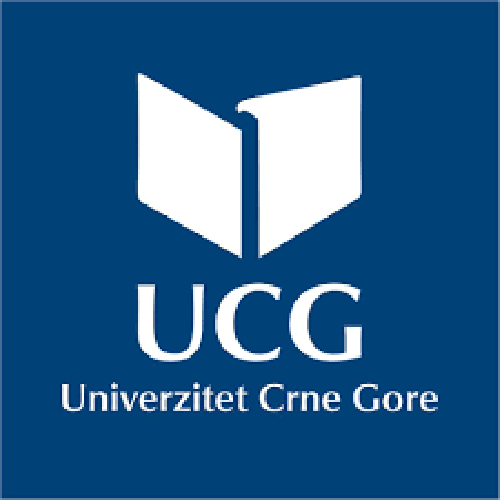 |
University of Montenegro: - only public/state university in Montenegro, - founded in 1974, - managed by Rector, governed by Managing Board, - supreme academic body: Senate, - comprehensive university, covering engineering, natural sciences, medicine, humanities and arts, - 19 faculties + 2 institutes, located throughout Montenegro, - 21 000 students (> 70% student population of Montenegro), - 1 200 staff (75% academy + 25% administration and technical staff). Faculty of Civil Engineering: - unit of the University of Montenegro, - established in 1980, - head by Dean, - highest academic body: Council, - licensed scientific research institution, registered by the Montenegrin Ministry of Science (2011), - key activities: education and research in the broad domain of civil engineering, - strong connections with Montenegrin civil engineering industry and deep involvement in practice through participation in numerous engineering projects with its human, laboratory and equipment resources, dealing particularly with complicated, tricky and challenging engineering issues, - 48employees [38 teaching (7 full professors (PhD, MSc, Dipl-Ing), 8 associate professors (PhD, MSc, Dipl-Ing), 5 assistant professors (PhD, MSc, Dipl-Ing), 18 teaching assistants (MSc, Dipl-Ing)) + 3 laboratory + 7 administration]+ 15 visiting professors from universities from neighbouring countries + teaching staff in general courses employed at other units of the University of Montenegro+ several part-time teaching assistants (Dipl-Ing or SpecSci), - 650 students, - 2 study programmes: Civil Engineering [academic studies; degrees: BSc (3 years), SpecSci (1 year), MSc (1 year), PhD (3 years)] and Management in Civil Engineering [applied studies; degrees: BApp (3 years), SpecApp (1 year)], - 5 specialisations in postgraduate (SpecSci, MSc) and PhD studies of Civil Engineering: structures, traffic, hydrotechnics, geotechnics and construction technology & management in civil engineering. Team: Goran Sekulić Ivana Ćipranić |
Public Water Management Company ‘’Vode Vojvodine’’
|
PWMC Vode Vojvodine was founded in order to take responsibilities for suistanable water management activities: Water resources management, Water use and utilization,Flood protection and Water protection in the territory of Autonomous Province of Vojvodina; to manage water facilities for waterway maintenance and flood protection on first level waters and water facilities for drainage which are public property and also ensures their intended use, maintenance and conservation.As an activity of general interest, water management ensures planned maintenance and the improvement of water regime in the territory of Autonomous Province of Vojvodina. The activities of PWMC Vode Vojvodine cover the territory of Autonomous Province of Vojvodina which is 21,506 km and around 2 million inhabitants. Main activity of PWMC Vode Vojvodine, according to the Regulation on Classification of Activities (RS Official Gazette, No 54/2010), is the engineering activity and technical consultancy (code of activity 7712). "Vode Vojvodine" has implemented 25 projects financed by World bank and several cross-border cooperation HU-SRB, RO-SRB, CRO-SRB projects for the past 7 years. Also, PWMC VV participates in one ENORASIS, one DTP project and had one G2G project with Netherlands. PWMC’s employees have participated in projects implementation, their field of work covers technical issues regarding water management, internal supervision of sluice works/renovation, Monitoring with dron in high precision in time of excess water inundations for collecting of orthophoto material in time series, financial management. Team: Olivera Gavrilović |


